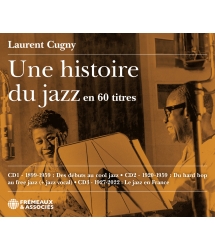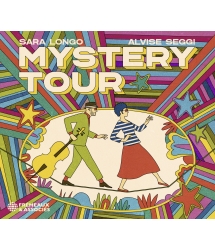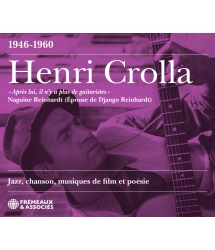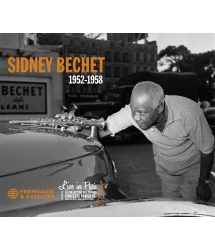- Our Catalog
- Philosophy
- Philosophers of the 20th century and today
- History of Philosophy (PUF)
- Counter-History and Brief Encyclopedia by Michel Onfray
- The philosophical work explained by Luc Ferry
- Ancient thought
- Thinkers of yesterday as seen by the philosophers of today
- Historical philosophical texts interpreted by great actors
- History
- Books (in French)
- Social science
- Historical words
- Audiobooks & Literature
- Our Catalog
- Jazz
- Blues
- Rock - Country - Cajun
- French song
- World music
- Africa
- France
- Québec / Canada
- Hawaï
- West Indies
- Caribbean
- Cuba & Afro-cubain
- Mexico
- South America
- Tango
- Brazil
- Tzigane / Gypsy
- Fado / Portugal
- Flamenco / Spain
- Yiddish / Israel
- China
- Tibet / Nepal
- Asia
- Indian Ocean / Madagascar
- Japan
- Indonesia
- Oceania
- India
- Bangladesh
- USSR / Communist songs
- World music / Miscellaneous
- Classical music
- Composers - Movie Soundtracks
- Sounds of nature
- Our Catalog
- Youth
- Philosophy
- News
- How to order ?
- Receive the catalog
- Manifesto
- Dictionnary











- Our Catalog
- Philosophy
- Philosophers of the 20th century and today
- History of Philosophy (PUF)
- Counter-History and Brief Encyclopedia by Michel Onfray
- The philosophical work explained by Luc Ferry
- Ancient thought
- Thinkers of yesterday as seen by the philosophers of today
- Historical philosophical texts interpreted by great actors
- History
- Books (in French)
- Social science
- Historical words
- Audiobooks & Literature
- Our Catalog
- Jazz
- Blues
- Rock - Country - Cajun
- French song
- World music
- Africa
- France
- Québec / Canada
- Hawaï
- West Indies
- Caribbean
- Cuba & Afro-cubain
- Mexico
- South America
- Tango
- Brazil
- Tzigane / Gypsy
- Fado / Portugal
- Flamenco / Spain
- Yiddish / Israel
- China
- Tibet / Nepal
- Asia
- Indian Ocean / Madagascar
- Japan
- Indonesia
- Oceania
- India
- Bangladesh
- USSR / Communist songs
- World music / Miscellaneous
- Classical music
- Composers - Movie Soundtracks
- Sounds of nature
- Our Catalog
- Youth
- Philosophy
- News
- How to order ?
- Receive the catalog
- Manifesto
- Dictionnary
UKELELE CLUB DE PARIS
Ref.: FA515
Artistic Direction : ALAIN CLUZEAU - ACOUSTI
Label : Frémeaux & Associés
Total duration of the pack : 46 minutes
Nbre. CD : 1
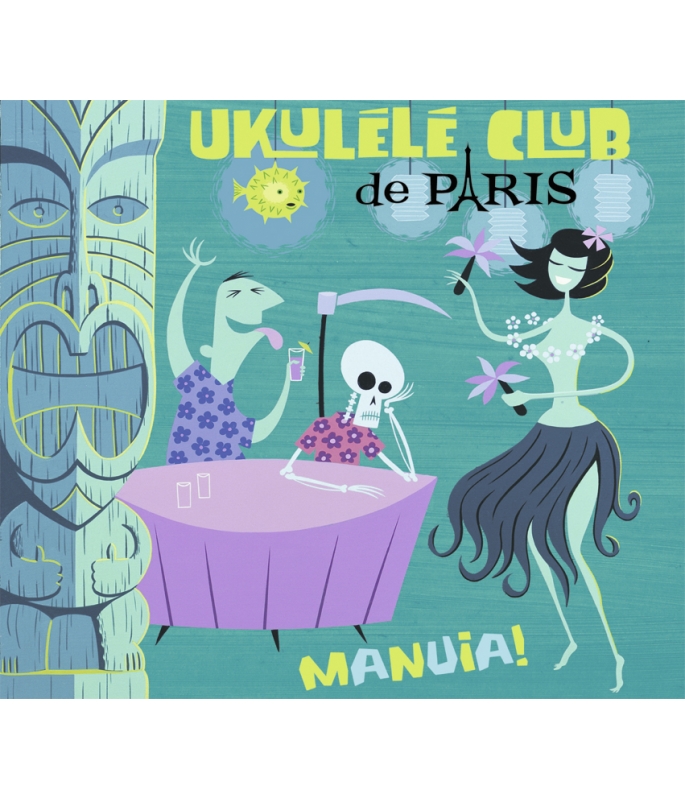
Frémeaux & Associés proudly presents Manuia ! by the Ukulélé Club de Paris, first issued by Universal, that became quite mythical and gained the press and public enthusiasm:
“Cravic and his fellow club members perform well-constructed compositions (…). Their repertoire includes Hawaiian and Javanese tunes, sambas, comedy songs, repetitive instrumental passages à la Terry Riley, original compositions, and old favorites, such as Hoagy Carmichael’s ‘Hong Kong Blues’.” By Mike Zwerin – International Herald Tribune
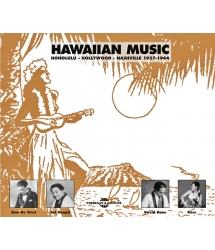
HONOLULU - HOLLYWOOD - NASHVILLE

TROP DE ROUTES, TROP DE TRAINS ET AUTRES HISTOIRES
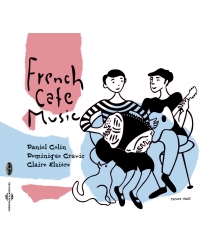
DANIEL COLIN, DOMINIQUE CRAVIC, CLAIRE ELZIERE
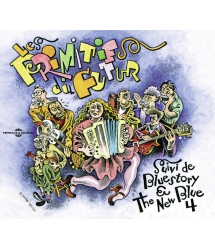
LES PRIMITIFS DU FUTUR





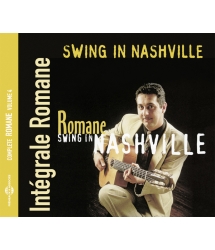
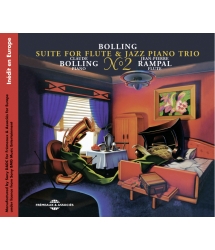
-
PisteTitleMain artistAutorDurationRegistered in
-
1Ma princesse des mers du sudUkulélé Club de ParisDuvall Jacques00:03:072002
-
2Chanson païenneUkulélé Club de ParisFreed A.00:04:192002
-
3ChigadagingUkulélé Club de ParisCravic Dominique00:02:532002
-
4Honolulu babyUkulélé Club de ParisHatley Marvin T.00:02:502002
-
5Bollywood slackUkulélé Club de ParisLefebvre Cyril00:04:182002
-
6Hong kong bluesUkulélé Club de ParisTruant Tony00:03:102002
-
7Teddy bears picnicUkulélé Club de ParisKennedy Jimmy00:03:042002
-
8Cabo azuladoUkulélé Club de ParisLefebvre Cyril00:02:512002
-
9PersonneUkulélé Club de ParisRogers Alex00:03:492002
-
10A la nouvelle EveUkulélé Club de ParisCravic Dominique00:04:002002
-
11No huhuUkulélé Club de ParisHoffman Al00:03:202002
-
12Java javanaiseUkulélé Club de ParisLefebvre Cyril00:01:432002
-
13Soirée mousseUkulélé Club de ParisTruant Tony00:03:142002
-
14Manchot rade septetUkulélé Club de ParisOvide Francois00:03:372002
Ukulélé Club de Paris Manuia
Ukulélé Club de Paris
Manuia
“Accessoire symbolique d’un exotisme joyeux” selon une bien alléchante définition encyclopédique, la petite guitare ukulélé au doux surnom de ’puce sauteuse’ serait-elle le sésame des mondes édéniques que papa Bougainville nous rapporta de Tahiti, avec une fleur et un sacré panier de rêves ? Cet accessoire porte en son histoire même une musique métisse. Emprunté aux Portugais venus planter la canne à sucre à Hawaii en 1879, il acquit son certif de polynésianité lorsqu’il fut promotionné par King David Kalakaua, cinquième roi de la lignée. Mais gardons en nos têtes, fussent-elles couvertes de fleurs, que cet exotisme s’origine dans nos rêves et nos cauchemars d’hominidés des régions tempérées. Que la vahiné ne vaut que par le kannibal son contraire, son repoussoir et son faire-valoir. Que tandis que l’une frétille en hula hula langoureuses, l’autre crie et gesticule un pilou pilou d’enfer, endiablé de cris, de hurlements, de sons terrifiants. Nos grands-pères, missionnaires intrépides et convertisseurs obsessionnels ou colons avides et aventuriers, propagateurs de la Religion, du Progrès et de la Civilisation, ont su mettre à profit ce petit stock d’images convenues, de stéréotypes commodes, de caricatures faciles pour construire le Grand Empire Royal, Républicain et Vaticanesque qui nous valut une Exposition coloniale du feu de dieu pendant laquelle chacun y allait de cette panoplie d’Enfer et de Paradis. Mais elle tient le coup, la petite guitare ukulélé, parce qu’elle célèbre un vrai mariage de goûts et de saveurs cuisiné à deux sauces : D’un bord, le demi-Blanc ou hapa haole, un genre musical qui dit bien la rêverie qui s’en exhale. Une imagerie à usage de chauffeurs de Cadillacs roses ou de surfeurs bronzés : tikis taillés à la tronçonneuse, cocktails aux noms déjantés, mobilier de bar au kitsch tropical, vaisselle ad hoc avec mugs-vahinés, motels imitant d’impossibles villages polynésiens. De l’autre bord, de géniaux musiciens polynésiens estampillés Hawaii ou Tahiti qui s’approprient un instrument venu du pays du bacalhao ! Et aujourd’hui, cet Ukulélé Club de Paris venu lier les deux sauces en un appareil jubilatoire sur lequel il saupoudre typique, répétitif, jazz ou java avec l’aplomb de Gavroche. Un véritable échange au long cours ! Le plus antipodesque que nos petites méninges puissent concevoir, le plus lointain, le plus improbable. Et qui sait, par sa réussite, dépasser les clichés les plus tenaces. L’huile essentielle de ce mélange etnik reste parfumée au tiaré : une seule mesure de cette médecine des dieux, et le cocotier bruisse, les feuillages du bois de fer murmurent au vent, la fleur blanche se donne au sable qui crisse sous le pied léger de la vahiné ! Qui s’en plaindrait ?
Roger Boulay
Roger Boulay, docteur en ethnologie, commissaire-concepteur de l’exposition “Kannibals et vahinés” (NOUMÉA 2000, PARIS 2002)
UKULÉLÉ CLUB DE PARIS
Dominique Cravic, Cyril LeFebvre, Fay Lovsky*, François Ovide, Joseph Racaille, BradNey Scott, Tony Truant
* avec l’aimable autorisation de Basta
1) Ma princesse des mers du Sud
Ukulélé Club de Paris avec Jean-Pierre Arnoux, percussions et Bertrand Auger, saxophone baryton
2) Chanson païenne
Ukulélé Club de Paris avec Marie France, chant et Jean-Pierre Arnoux, percussions
3) Chigadaging
Ukulélé Club de Paris avec Silvano Michelino, percussions
4) Honolulu Baby
Ukulélé Club de Paris avec Jean-Pierre Arnoux, percussions et Bertrand Auger, saxophone baryton
5) Bollywood Slack
Ukulélé Club de Paris avec Jean-Pierre Arnoux, percussions
6) Hong Kong Blues
Ukulélé Club de Paris avec Jean-Pierre Arnoux, percussions et Bertrand Auger, clarinette basse
7) Teddy Bear’s Picnic
Ukulélé Club de Paris.
8) Cabo azulado
Ukulélé Club de Paris avec Silvano Michelino, percussions
9) Personne
Ukulélé Club de Paris
10) À la Nouvelle Ève
Ukulélé Club de Paris avec Claire Elzière, chant, Silvano Michelino, percussions et Jean-Michel Davis, marimba
11) No Huhu !
Ukulélé Club de Paris
12) Java javanaise
Ukulélé Club de Paris avec Dora Lou, chant
13) Soirée mousse
Ukulélé Club de Paris avec Jean-Pierre Arnoux, percussions
14) Manchot rade septet
Ukulélé Club de Paris
Enregistré en 2001 aux Studios Acousti par Yannick Cayuela
Mixé aux studios Acousti par Yannick Cayuela, sauf titres 5, 10 et 14 par Alain Cluzeau
Produit par Acousti Studios - Producteur délégué : Alain Cluzeau
Tableau “Endless Vacation” & lettrage : Shag
Artwork : Gilles Guerlet - Photos : Lucille Reyboz - Traduction : Martin Davies
Contact Ukulélé Club de Paris : TEMPO SPECTACLE - DENIS LEBLOND : +33 (0)1 42 26 03 03
English notes
The little guitar known as the ukulele has been tastily defined in one encyclopaedia as an “accessory symbolic of a joyful exoticism”, and it also answers to the gentle nickname of “jumping flea”... but could it be the key to the worlds of Eden that daddy Bougainville brought back to France from Tahiti, along with a flower and one hell of a basket of dreams? This “accessory” has carried crossbreed music with it all the way down through its history: Borrowed from the Portuguese who came to plant sugar-cane in Hawaii in 1879, it acquired its Polynesian certificate when it was promoted by King David Kalakaua, the fifth king in the blood-line. But there's one thing we should keep in our heads even if they are covered with flowers: this exoticism comes from our dreams and our human nightmares of warmer climes, and the wahine only exists through its cannibal opposite, its ugly counterpart and foil. While the former wriggles in a languorous hula-hula, the latter cries and gesticulates in a diabolic pilou-pilou with all the cries, screams and terrifying sounds that come from the Devil himself. Our grandfathers, whether intrepid missionaries and obsessed converters, or greedy colonists and adventurers propagating Religion, Progress and Civilisation, learned to turn a profit from this tiny stock of conventional images, handy stereotypes and facile caricatures, and create the Great Royal, Republican and Vatican-esque Empire that gained the French a colonial Exhibition the size of God's wrath, one that gave everyone a leash long enough to make the most of this armoury of Hell and Paradise all in one. But the little ukulele held fast, because it celebrated a true marriage of tastes and flavours cooked in two sauces: First, the hapa haole, “half-White”, a musical genre that well expresses the reverie that it exhales - an imagery to be used by chauffeurs of pink Cadillacs or sun-tanned surfers: chainsaw-carved tikis, cocktails with unhinged names, bar-furniture of tropical kitsch, various crockery with vahines on the mugs, and motels imitating impossible Polynesian villages. Second, Polynesian musicians of genius (branded Hawaii or Tahiti) who appropriated the instrument from the land of the bacalhao! And today we have the Ukulele Club of Paris, who blend the two sauces together in a jubilant machine in which they sprinkle typique and the repetitive genre, Jazz or Java with all the cheek of Gavroche. A real long-haul exchange! The most antipodal that our tiny brains can conceive of, the furthest and the most improbable, an exchange whose very success avoids the pitfalls of the most stubborn clichés. The essential oils of this “etnik” mixture retain the perfume of the tiaré: a single measure of this medicine of the Gods, and the coconut palm murmurs, the leaves of the ironwood tree rustle in the wind, and the white flower gives itself to the sand, crunching under the light step of the wahine! And who's to complain?
Dr. Roger Boulay
Dr. Roger Boulay, ethnologist, commissaire and originator of the “Kannibals and Vahines” Exhibition (NOUMÉA 2000, PARIS 2002). Translation by Martin Davies
CD Ukulélé Club de Paris - Manuia © Frémeaux & Associés (frémeaux, frémaux, frémau, frémaud, frémault, frémo, frémont, fermeaux, fremeaux, fremaux, fremau, fremaud, fremault, fremo, fremont, CD audio, 78 tours, disques anciens, CD à acheter, écouter des vieux enregistrements, albums, rééditions, anthologies ou intégrales sont disponibles sous forme de CD et par téléchargement.)
